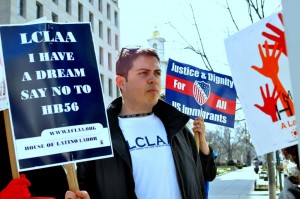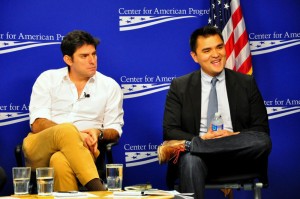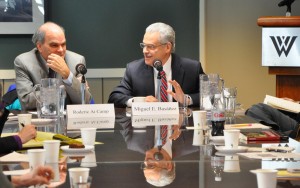Latino group joins re-enactment of Selma to Montgomery March
|
WASHINGTON – Thousands of people gather in Alabama each year to re-enact the Selma to Montgomery March that took place 47 years ago. This year protesters will have not just a memory but a new cause as they march across the Edmund Pettis Bridge. Representatives from the Labor Council for Latin American Advancement, Hispanic Federation, League of United Latin American Citizens and the National Council of La Raza held a rally here Wednesday to announce they would join the re-enactment of the civil rights march. They left after the rally for the 14-hour bus ride to Selma, Ala., to take part in the final two days of the Selma to Montgomery March re-enactment that started Sunday. The 1965 march for voting rights ended in violence when peaceful protesters were attacked by local law enforcement using tear gas and clubs.



